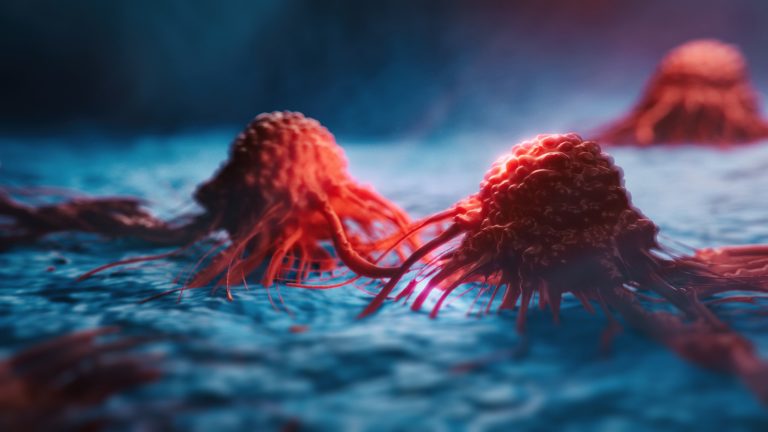
The success of a tumor cell circulating in the bloodstream to grow into a metastasis is highly dependent on the characteristics of the environment. Now, a new mouse study by scientists from the German Cancer Research Center (DKFZ) and the Medical Faculty Mannheim, Heidelberg University, reveals a new growth factor produced by blood vessels that enables tumor cells to metastatically colonize organs.
Their findings are published in the journal Science Translational Medicine in a paper title “Temporal multi-omics identifies LRG1 as a vascular niche instructor of metastasis.”
“Metastasis is the primary cause of cancer-related mortality,” write the researchers. “Tumor cell interactions with cells of the vessel wall are decisive and potentially rate-limiting for metastasis. The molecular nature of this cross-talk is, beyond candidate gene approaches, hitherto poorly understood. Using endothelial cell (EC) bulk and single-cell transcriptomics in combination with serum proteomics, we traced the evolution of the metastatic vascular niche in surgical models of lung metastasis.”
The researchers studied mice whose primary tumors were surgically removed. “This intervention enabled us to distinguish for the first time which properties of the metastatic niche are controlled by the distant primary tumor and which are regulated locally,” explains Hellmut Augustin, adding, “It is also essential that we were thus able to recreate the situation of tumor patients after surgery in the experimental system.”
Focusing on the lung, the researchers performed global gene expression analyses of the metastatic niche. They observed that in the presence of a primary tumor, the endothelial cells lining the interior of blood vessels produced the protein LRG1 (leucine-rich alpha-2-glycoprotein 1) in large quantities. “The blood vessels produced LRG1 exclusively in the presence of the primary tumor, which stimulates the growth of nearby connective tissue cells in the lung. This creates a tumor cell growth-promoting microenvironment (‘niche’) where circulating tumor cells can settle and grow into lung metastasis,” said DKFZ researcher Mahak Singhal, first author of the current study, adding, “This is the first time we have demonstrated that the metastasis-promoting effect of the niche is triggered over long distances by the primary tumor.” From a certain size, the metastases then act like a primary tumor themselves, again promoting the formation of LRG1.
The gene LRG1 was recently found to be a driver of emphysema, and showed that deleting the gene from endothelial cells held back disease progression.
“On the one hand, we can now detect LRG1 produced by endothelial cells as a biomarker indicative of a metastatic tumor. In addition, we want to validate LRG1 as a target for new therapeutic approaches that may be able to halt the metastatic spread of tumors,” explains study leader Hellmut Augustin, summarizing the current results.













